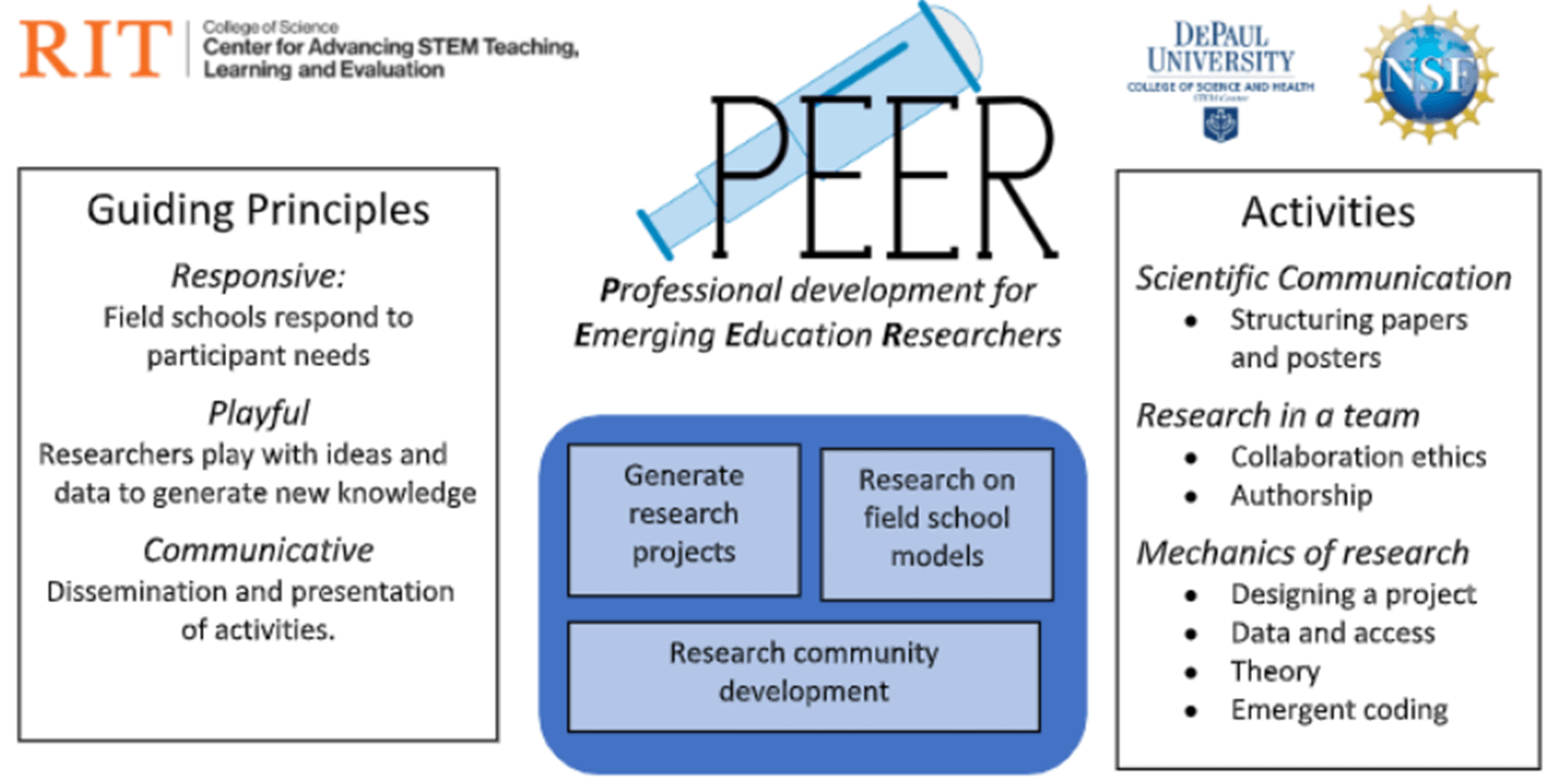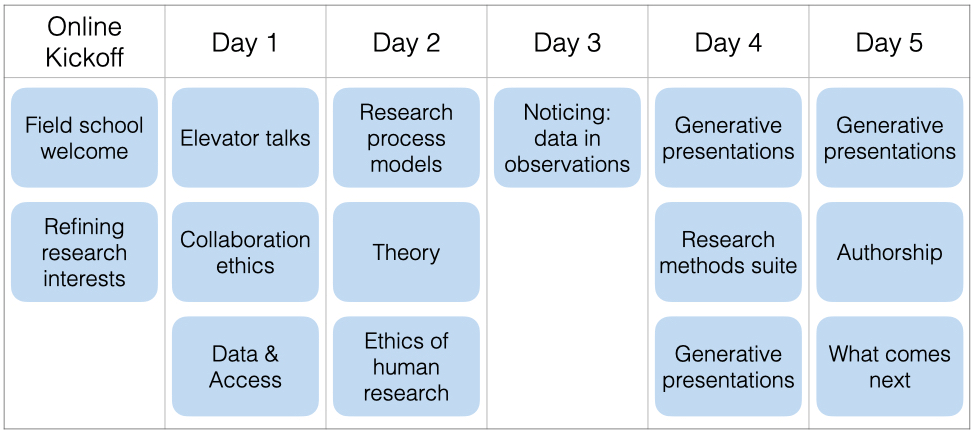Research Project
Professional Development for Emerging Education Researchers (PEER)
Principal Investigator(s)
Scott Franklin
Research Team Members
Postdocs:
Christian Solorio
Grad students:
Kayleigh Patterson
Collaborators:
Eleanor Sayre, Mary Bridget Kustusch (DePaul University)
Funding
Current Funding:
Collaborative Research: Institute in Research Methods for Professional Development for Emerging Education Researchers (PEER) Field Schools, NSF BCSER #2025170, September 2020 - August 2024
Project Description
Impact
Discipline-based Education Research (DBER) and Scholarship of Teaching and Learning (SoTL) improve teaching and learning through empirical research and inquiry. To cultivate the growth and development of these research communities, it is essential to support emerging education researchers. The Professional Development for Emerging Education Researchers (PEER) Program is designed to expand emerging education researchers' theoretical and methodological knowledge through field schools and workshops. PEER’s guiding principles of being responsive, playful, and communicative serve to build faculty, postdoc, and graduate student capacity to engage in and produce high-quality STEM education research. Of the over 200 PEER participants, many continue on to design research projects, collect and analyze data, publish manuscripts, and collaborate within the community. We are interested in the short-term and long-term effects of the program on those who participated in PEER field schools and workshops. Our research investigates the experiences and identities of PEER participants and the resources, skills, and communities that have shaped their education research trajectories.

Guiding principles of PEER. PEER is responsive, playful, and communicative. These principles are reflected in the activities conducted at PEER workshops and field schools. At PEER workshops and field schools, participants generate research projects, a community is formed, and the PEER team researches and iteratively improves the professional development model.
Overview
PEER field schools are 5-day introductions to education research that leverage active engagement and community building between participants. During field schools, participants develop and practice fundamental research skills, plan their own research projects, and build their self-efficacy in doing education research. Field schools have been hosted virtually and in locations throughout the world (and we continue to add new locations):
- Rochester, NY, United States.
- Chicago, IL, United States.
- Ambleside, UK
- Cologne, Germany
- Kibungo, Rwanda
- Monterrey, Mexico
- Vancouver, British Columbia

SAMPLE FIELD SCHOOL SCHEDULE. Each day of a PEER field school builds the capacity of participants to do high-quality research by introducing some of the essential components of education research.
We are interested in investigating the short-term and long-term impacts that these field schools have on emerging education researchers and understanding the sociocultural environment of Discipline-Based Education Research. This will inform not only how we conduct the field schools, but also allow us to make recommendations to the education research community that will support new education researchers, build community, and improve the quantity and quality of research being done.
Research questions
We are interested in investigating:
- The barriers that emerging education researchers face in DBER communities and how they navigate them
- The identities of emerging education researchers and their positioning in the research community
- The skills, practices, resources, and communities that PEER participants develop and utilize long-term
- The affordances and efficacy of our Field school models
Publications
- El-Adawy, S., Alexis, C., & Sayre, E. C. (2023). Emerging STEM education researchers’ positioning and perception of discipline-based education research (arXiv:2308.04401). arXiv. https://doi.org/10.48550/arXiv.2308.04401
- El-Adawy, S., Franklin, S. V., & Sayre, E. C. (2023). Emerging Physics Education Researchers’ Growth in Professional Agency: Case Study (arXiv:2307.06149). arXiv. https://doi.org/10.48550/arXiv.2307.06149
- Hass, C. a. F., & El-Adawy, S. (2022). Emerging Mathematics Education Researchers’ Conception of Theory in Education Research. Proceedings of the Annual Conference on Research in Undergraduate Mathematics Education. https://par.nsf.gov/biblio/10339675-emerging-mathematics-education-researchers-conception-theory-education-research
- Hass, C. A. F., Hancock, E., Wilson, S., El-Adawy, S., & Sayre, E. C. (2021). Community Roles for Supporting Emerging Education Researchers. 172–177. https://www.per-central.org/items/detail.cfm?ID=15748